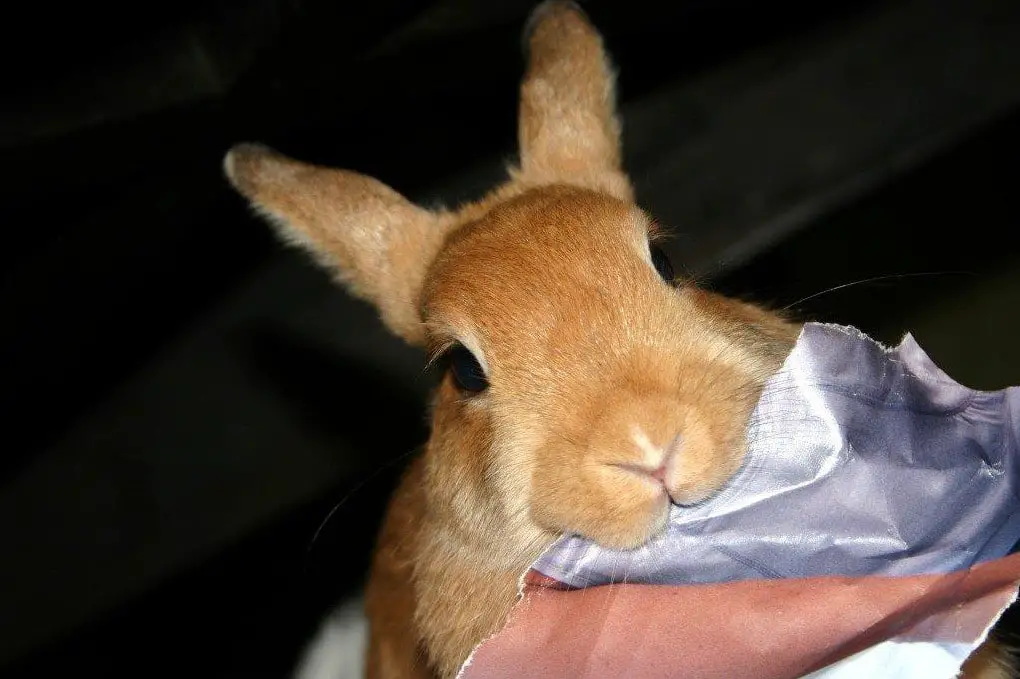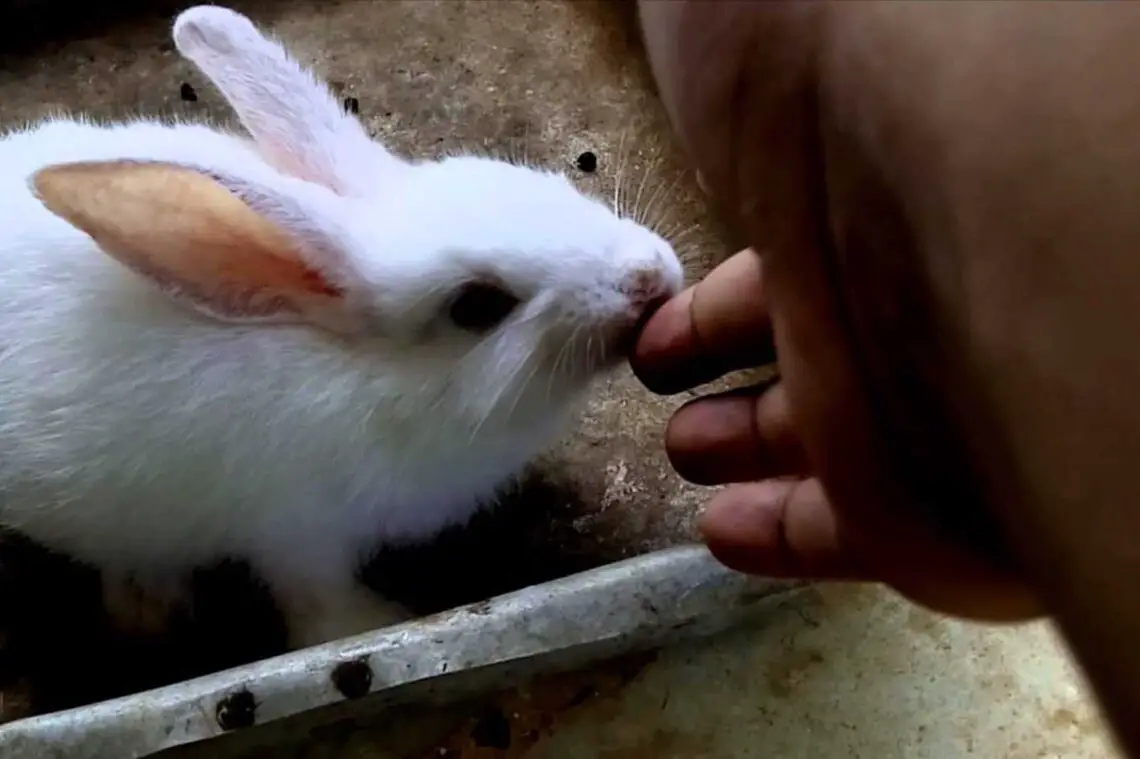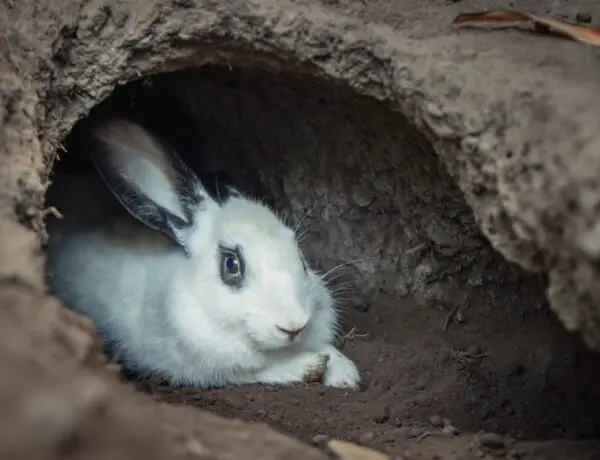Introduction
Do Rabbits Bite: Rabbits, often associated with their adorable and fluffy appearance, are generally known for their gentle and timid nature. However, like any animal, rabbits have their unique behaviors and instincts, including the potential to bite. While rabbits are not typically aggressive creatures, there are circumstances that might lead them to bite. Understanding the reasons behind rabbit bites, their body language, and how to interact with them can help ensure positive interactions and prevent any unintended bites.
Rabbit bites are relatively rare and usually occur in response to specific triggers. Rabbits have evolved as prey animals, which has shaped their behaviors and instincts. They rely on various methods to communicate and protect themselves in their environment. Understanding a rabbit’s body language is crucial in predicting their behavior and avoiding potential bites.
Rabbits litter, often associated with their adorable and fluffy appearance, are generally known for their gentle and timid nature. However, like any animal, rabbits have their unique behaviors and instincts, including the potential to bite. While rabbits are not typically aggressive creatures, there are circumstances that might lead them to bite. Understanding the reasons behind rabbit bites, their body language, and how to interact with them can help ensure positive interactions and prevent any unintended bites.

What happens when a rabbit bites you?
Are rabbit bites dangerous? Rabbit bites are not dangerous. While it is theoretically possible for a rabbit bite to get infected, this is very uncommon, especially if you’ve taken the time to wash the rabbit bite. If you have a very serious rabbit bite that punctures deep, this can potentially cause tetanus.
Reasons Behind Rabbit Biting
Rabbits may bite for various reasons, including fear, territorial instincts, pain, frustration, or mistreatment. It’s crucial to remember that rabbits don’t typically bite without provocation. They might perceive a hand as a threat or be feeling uncomfortable or cornered, leading them to react defensively.
Potential Physical Consequences
When a rabbit bites, the immediate physical consequences are often minor. Rabbit bites tend to be shallow and may cause puncture wounds or scratches. The severity of the bite depends on factors such as the rabbit’s size, its emotional state at the time of the bite, and the reaction of the person involved. These bites might result in redness, swelling, and some pain.
Risk of Infection
While rabbit bites themselves may not seem too serious, there’s a potential risk of infection. Rabbit teeth, although small, are sharp and can easily introduce bacteria into the wound. This can lead to localized infections, which, if left untreated, could potentially spread and cause more significant health issues.
Do rabbit bites hurt?
Although many rabbit bites are defensive, some rabbits may bite aggressively for a variety of reasons. Rabbit bites can be painful and serious. If a bite bleeds excessively, shows symptoms of infection, or concerns you in any way, it’s best to seek medical attention.
Physical Consequences
The physical impact of a rabbit bite is usually minor. The bite itself may result in puncture wounds or scratches, causing some redness and swelling. While the immediate discomfort might not be severe, there’s a potential risk of infection due to the introduction of bacteria into the wound.
Risk of Infection
Although the initial pain from a rabbit bite may be manageable, the risk of infection is a more serious concern. Rabbit bites, like any open wound, can become infected if not properly cleaned and treated. Bacteria from the rabbit’s mouth can enter the wound, potentially leading to localized infections.
Emotional Response
Beyond the physical aspects, the emotional response to a rabbit bite can vary. Some individuals might experience surprise, discomfort, or anxiety following a bite. The experience can also impact the relationship between the human and the rabbit, potentially leading to changes in handling and interactions.
Is rabbit harmful to humans?
Rabbits can transmit bacteria through bites and scratches. One of the common agents involved is Pasteurella multocida, a bacterium that resides in the oral cavity and upper respiratory tract of rabbits.
Wild Rabbits
Fearful Behavior: Wild rabbits are naturally more cautious and fearful of humans. Approaching them too closely or suddenly can cause stress and fear, potentially leading to erratic behavior.
Disease Transmission: Like any wild animal, wild rabbits can carry diseases or parasites that may pose risks to humans. Direct contact should be avoided, especially if a rabbit appears sick or behaves unusually.
Potential Aggression: In rare cases, wild rabbits might display defensive behavior if they feel threatened. This could include lunging, kicking, or scratching. It’s best to observe wild rabbits from a distance.
Precautions for Safe Interaction
Wash Hands: After handling rabbits, especially if they’re from the wild, thoroughly wash your hands to reduce the risk of disease transmission.
Avoid Sudden Movements: When approaching rabbits, make slow and deliberate movements to avoid startling them. This applies to both domestic and wild rabbits.
Respect Boundaries: Allow rabbits to come to you rather than trying to catch or corner them. This minimizes stress for the animal and reduces the risk of unintended reactions.
Vaccination and Health Care: For domestic rabbits, regular veterinary care and vaccinations are essential to ensure they remain healthy and pose no risks to humans.
Do indoor rabbits bite?
Rabbits usually don’t bite, but if one does it generally doesn’t mean they hate you. There are many reasons that might cause a rabbit to bite — for example, if you grab at a rabbit or surprise them. A rabbit might also accidentally bite while tugging at your pant leg.
Minimizing the Risk of Biting
Socialization: Spend time bonding with your rabbit through gentle petting and positive interactions. This can help them become more accustomed to human touch and reduce their fear response.
Proper Handling: Approach rabbits slowly and calmly. Avoid sudden movements or loud noises that might startle them.
Respect Their Space: Rabbits appreciate having their personal space respected. Give them hiding spots in their enclosure where they can retreat when they feel the need.
Observation: Pay attention to your rabbit’s body language. If they show signs of stress, fear, or discomfort, it’s best to give them space.
Dealing with Bites
Clean the Wound: Wash the wound thoroughly with soap and water to prevent infection.
Antibiotic Ointment: Apply an antibiotic ointment to the wound to reduce the risk of infection.
Observe for Infection: Keep an eye on the wound for any signs of infection, such as redness, swelling, or warmth. If infection occurs, seek medical attention.
Address the Cause: If your rabbit’s biting behavior is persistent, consider seeking advice from a veterinarian or a rabbit behavior specialist to address any underlying issues.
Will a baby rabbit bite you?
A rabbit under pressure will bite or scrape. If a rabbit scratches or bites your child, they could develop a reaction or infection. This is the most common child health problem with rabbits.
Understanding Baby Rabbit Behavior
Baby rabbits go through various developmental stages, and their behavior can differ from that of adult rabbits. Understanding these stages helps in interpreting their actions and reactions accurately.
Transition to Adulthood
As baby rabbits grow into adulthood, their behavior might evolve. With proper handling, socialization, and care, they are likely to develop gentle and friendly personalities.
Biting Behavior in Baby Rabbits
Baby rabbits are less likely to bite than adult rabbits. Their curiosity and natural inclination to explore their environment might lead them to nibble on objects, including fingers. However, this is typically more about exploration than aggression. Baby rabbits have small, less developed teeth, which means their bites are usually less painful and cause minimal harm.
Do rabbits carry diseases?
Tularemia, also known as “rabbit fever,” is a disease caused by the bacterium Francisella tularensis. Tularemia is typically found in animals, especially rodents, rabbits, and hares. Tularemia is usually a rural disease and has been reported in all U.S. states except Hawaii.
Rabbit Diseases:
Rabbits can carry various diseases, some of which are specific to their species while others can also affect humans. It’s important to note that not all rabbits carry diseases, and the risk varies depending on factors such as their environment, health status, and hygiene practices.
Common Rabbit Diseases
Pasteurellosis: Also known as “snuffles,” this bacterial infection can cause respiratory issues in rabbits and, in rare cases, may be transmitted to humans through scratches or bites.
Rabbit Hemorrhagic Disease Virus (RHDV): A highly contagious and often fatal viral disease that affects rabbits. While it doesn’t typically pose a risk to humans, it’s crucial to prevent its spread among rabbits.
Parasitic Infections: Rabbits can carry internal and external parasites, such as mites, fleas, and intestinal worms, which can impact their health. Some of these parasites may have zoonotic potential, meaning they could be transmitted to humans.
Can I get rabies from a rabbit bite?
Small rodents (like squirrels, hamsters, guinea pigs, gerbils, chipmunks, rats, and mice) and lagomorphs (including rabbits and hares) are almost never found to be infected with rabies and have not been known to transmit rabies to humans.
Rabies: A Brief Overview
Rabies is caused by the rabies virus, which affects the central nervous system and is usually transmitted through the saliva of infected animals. It’s a deadly disease that affects mammals, including humans, and can be spread through bites, scratches, or open wounds that come into contact with infected saliva.
Rabbits and Rabies Transmission
Rabbits are not common carriers of the rabies virus. In fact, the likelihood of a rabbit carrying rabies is extremely low. Rabbits are considered a species with a low risk of contracting and transmitting the virus due to their relatively small size, herbivorous diet, and non-aggressive nature. Wild rabbits are not a primary reservoir for rabies, and cases of rabbits transmitting rabies to humans are exceedingly rare.
Risks of Rabies Transmission from Rabbits
Unusual Behavior: Rabbits with rabies may display abnormal behavior such as aggression, paralysis, or excessive salivation. These symptoms are not common in rabbits and should raise concerns if observed.
Rare Cases: While extremely rare, it’s theoretically possible for a rabbit to contract rabies if bitten by an infected animal, such as a bat or a wild carnivore. However, this scenario is highly unlikely.
Does rabbit bite need injection?
Bites from pet rabbits hurt and often bleed. However, rabbit bite wounds are usually not deep, and don’t require medical intervention. Occasionally, bites can get infected, in which case you may need antibiotics. You should also get a tetanus shot if you haven’t had one in the last ten years.
Understanding Rabbit Bites
Rabbit bites, while not common, can happen due to various reasons, including fear, discomfort, or perceived threat. The bites can range from superficial scratches to more significant puncture wounds. The severity of the bite and the potential need for medical intervention depend on several factors.
Risk of Infection
One of the primary concerns with any animal bite, including rabbit bites, is the risk of infection. The mouths of animals, including rabbits, harbor bacteria that can be introduced into the wound during a bite. Infections can lead to localized redness, swelling, and pain. In severe cases, infections can spread and lead to more serious health issues.

Conclusion
Rabbits are generally gentle and timid animals, but they do have the potential to bite in certain situations. It’s important to remember that rabbit bites are often a response to perceived threats, fear, discomfort, or miscommunication. These bites are not a sign of inherent aggression, but rather a means of self-defense or expression of distress.
To minimize the risk of rabbit bites and ensure positive interactions, understanding their behaviors and body language is essential. Respecting their personal space, handling them gently, and being attuned to their cues can help prevent situations that might lead to biting. Socializing rabbits from a young age and creating a calm and secure environment can also contribute to reducing their likelihood of resorting to biting.
Ultimately, developing a bond of trust and patience with rabbits can lead to enriching and fulfilling relationships. While bites can occur, they are usually avoidable through careful and considerate interactions. By approaching rabbits with respect, empathy, and a willingness to learn about their needs, humans can build rewarding connections with these charming and endearing creatures.





No Comments